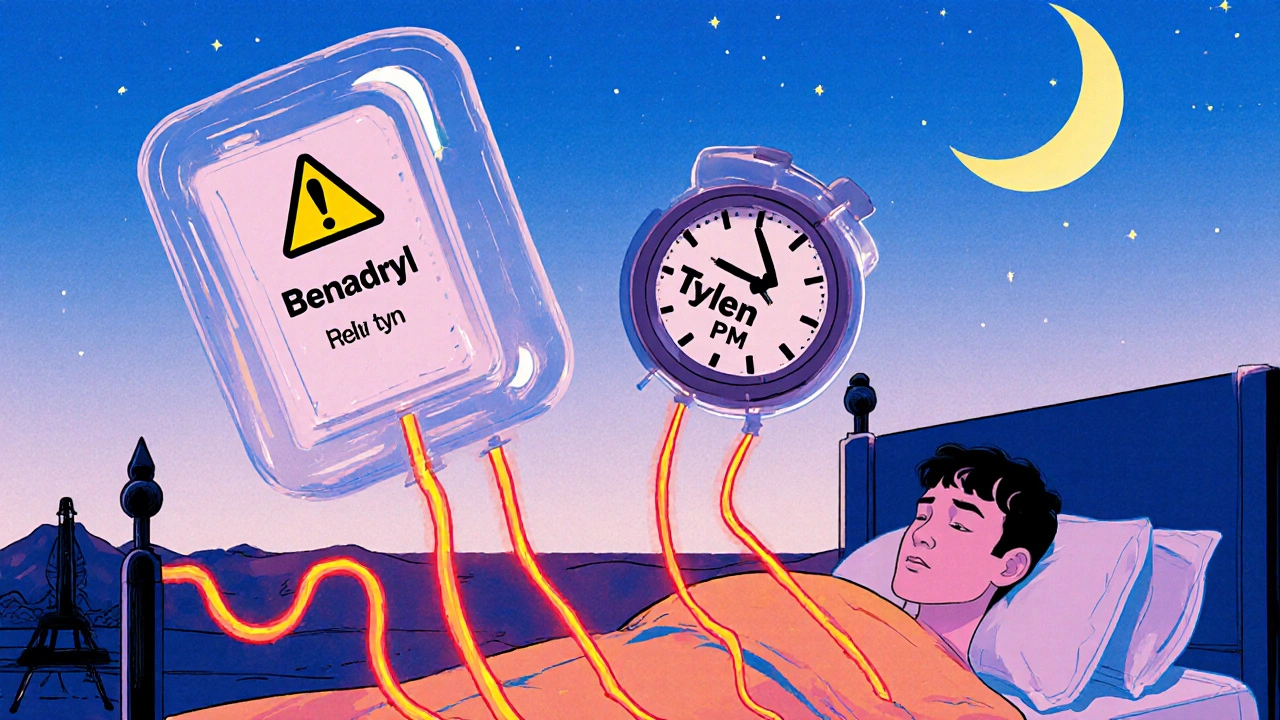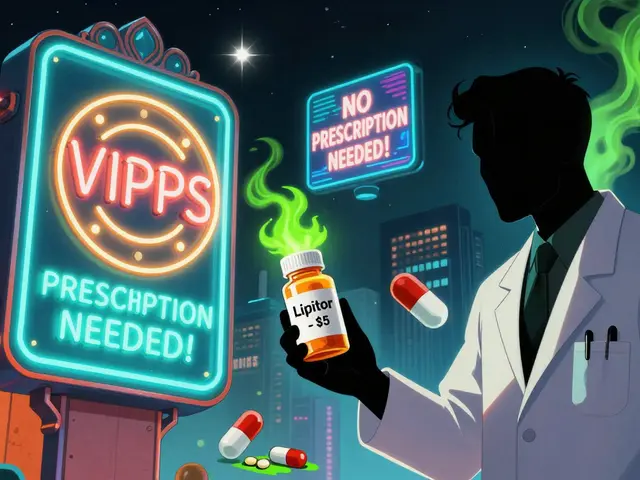Benadryl: What It Is, How It Works, and What You Need to Know
When you're dealing with a sneeze, itchy rash, or sleepless night, Benadryl, a first-generation antihistamine that blocks histamine to reduce allergy symptoms. Also known as diphenhydramine, it's one of the most recognizable names in over-the-counter medicine. You’ve probably seen it on the shelf beside cold meds and sleep aids. But Benadryl isn’t just a quick fix—it’s a tool with specific uses, real side effects, and limits you should know about.
It works by stopping histamine, the chemical your body releases during an allergic reaction. That means it helps with runny nose, watery eyes, hives, and insect bites. But it also crosses into your brain, which is why it makes you drowsy. That’s why people use it as a sleep aid—even though it wasn’t designed for that. The drowsiness isn’t a bonus feature; it’s a side effect that can stick around the next day, leaving you foggy or unsteady. And if you take it often, your body might start needing more to get the same effect. It’s not a long-term solution for allergies or insomnia.
Benadryl is often compared to newer antihistamines like cetirizine or loratadine, which don’t cause drowsiness. But Benadryl still has its place—especially when you need fast relief from a sudden reaction or when you’re trying to fall asleep. It’s also used for motion sickness and some types of tremors. But here’s the thing: if you’re using it every day for allergies, you’re probably better off switching to something that won’t knock you out. And if you’re using it to sleep, you might be masking a deeper issue like stress or sleep apnea.
It’s not safe for everyone. Older adults are more likely to have confusion, dry mouth, or trouble urinating. Kids under six shouldn’t take it without a doctor’s advice. And mixing it with alcohol, painkillers, or antidepressants can be dangerous. Even though it’s easy to buy, Benadryl isn’t harmless. It’s a powerful drug with a narrow window between helping and harming.
Below, you’ll find real questions people ask about Benadryl—what it does, what it doesn’t do, how to use it safely, and what alternatives actually work better. These aren’t generic advice pieces. They’re based on real experiences, clinical data, and practical use cases. Whether you’re wondering if it’s okay to take Benadryl every night, or if it helps with anxiety, or why it sometimes stops working—you’ll find clear answers here.
 28 October 2025
28 October 2025
Antihistamines and Restless Legs: Worsening Symptoms and Safe Alternatives
Sedating antihistamines like Benadryl can severely worsen restless legs syndrome by blocking dopamine in the brain. Learn which allergy meds are safe and what alternatives actually work.
Latest Posts
-

Post-Transplant Infections: How to Prevent, Vaccinate, and Monitor After Kidney Transplant
-

Best CVS Alternatives: Top Pharmacies & Online Prescription Services in 2025
-

Felix Weight Loss Program Honest Review: Pricing, Medications & User Experience in 2025
-

How to Identify Counterfeit Pills that Increase Overdose Danger
-

Legit vs Rogue Online Pharmacies: Red Flags to Watch

11